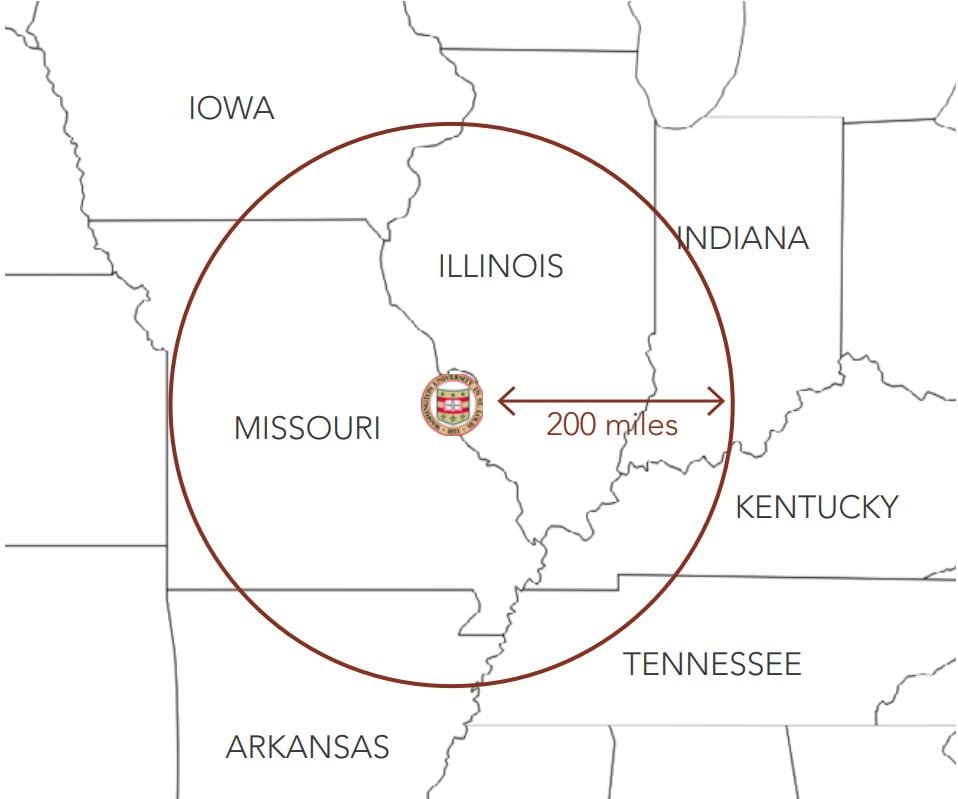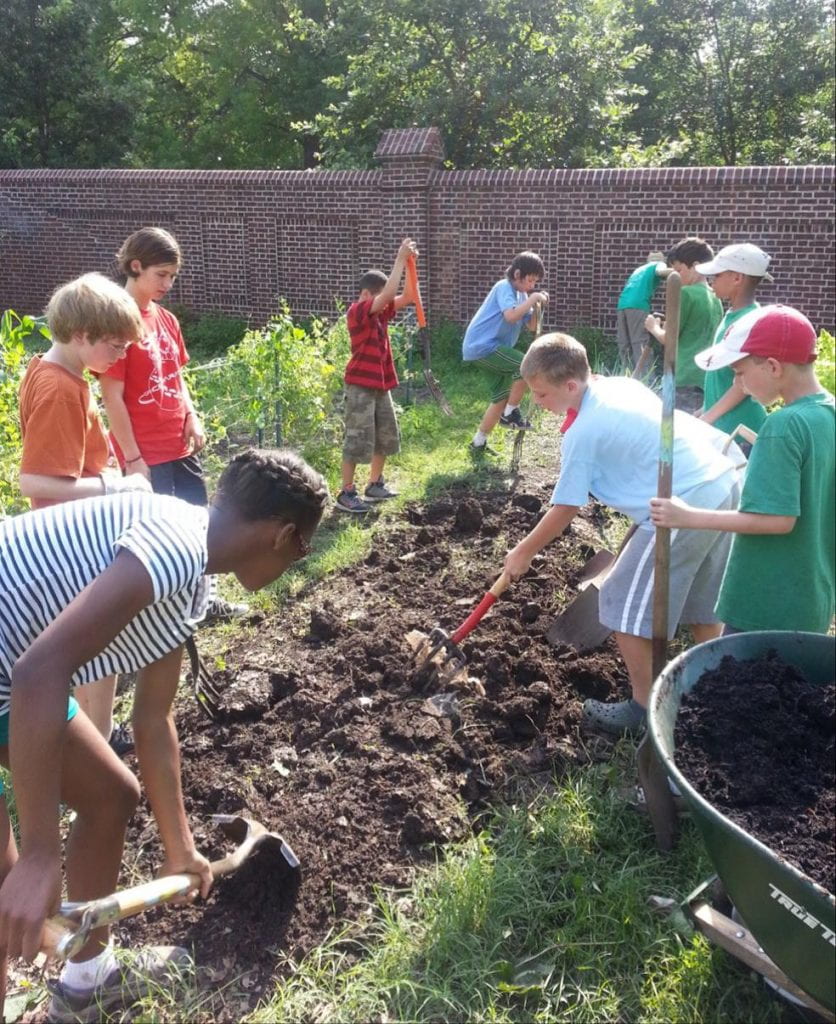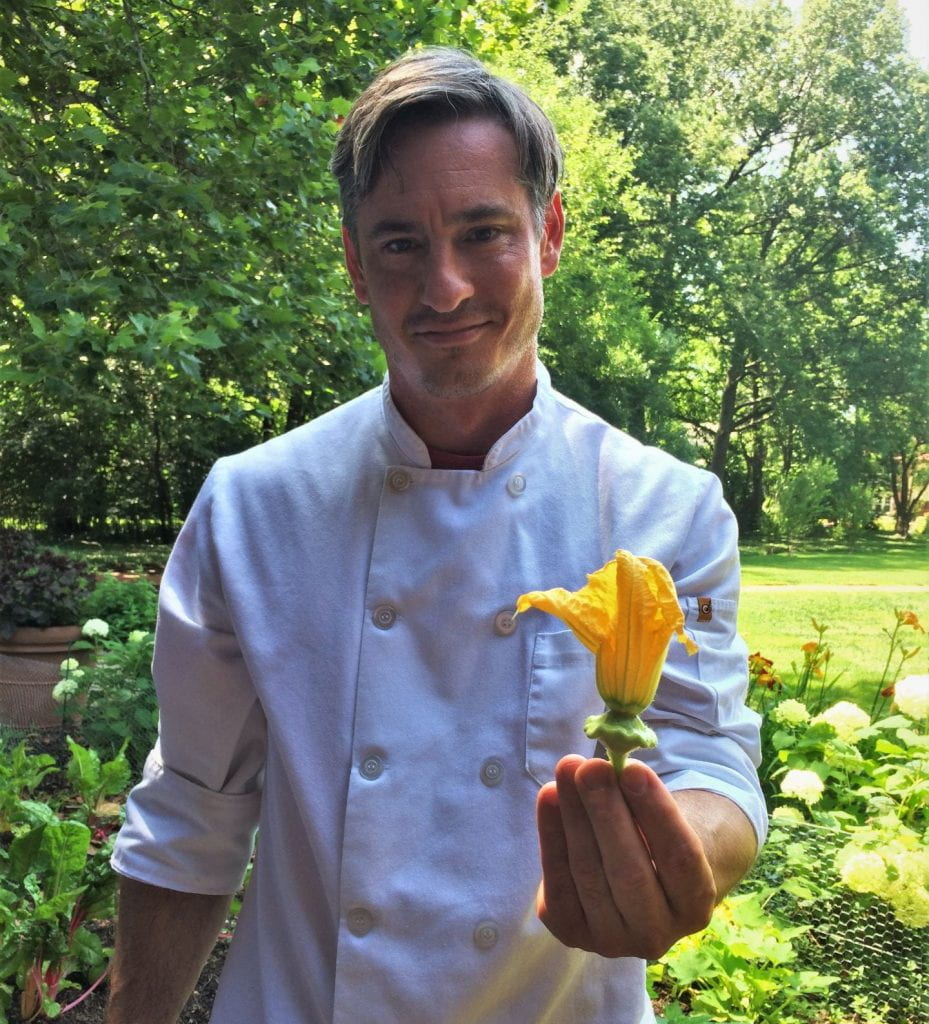Washington University in St. Louis is committed to purchasing local and seasonal products as much as possible. Sourcing locally decreases the carbon footprint of transporting food over long distances, supports a strong local economy, and brings the freshest products to our plates.
Why It Matters
- In average, fresh produce travels 1,500 miles to get to your plate. In addition to generating large amounts of greenhouse gases, the transportation of fresh food over long distances impacts the nutritional quality and the taste of the food.
- Less than 0.01% of St. Louis regional cropland is used to grow food for people; the rest of it being exploited to produce animal feed or chemicals like ethanol. Buying local food is supporting those who contribute to our local economy and the richness of our regional landscapes.
- Partnerships with local food producers decrease the turnaround time from farm to fork, allowing food to retain a higher nutritional value and eliminating the need for preservatives. Local family farms are preferable because the owners have a stronger relationship to the land, increasing the likelihood that they are conscientious stewards.
- A food supply chain that is close to home and smaller scale is more resilient, as less vulnerable to global market fluctuations and health crisis like the COVID-19 pandemic.
Our Efforts
We source locally.
- In 2019, approximately 19% of the food served on campus is purchased from vendors located within 200 miles of campus, which is a range sufficient to include most of Missouri, Illinois and parts of the surrounding Midwest.
- Bon Appétit, WashU’s main Dining provider, is strongly committed to purchasing local food through its Farm to Fork program. Chefs have to buy at least 20% of their ingredients from small owner-operated farmers and producers within 150 miles of their kitchens. In addition, the program requires the local farmers to use environmentally and socially responsible production practices, and third-party certifications when possible.

- Locally Crafted is an outgrowth of the Farm to Fork program that focuses on food production and business. To qualify for this program, participants must consider local and humane sourcing as well as social sustainability factors, such as having a 100% minority or female staff and a commitment to providing disadvantaged populations with jobs.
- At Ibby’s Bistro in the Danforth University Center, between 70-80 percent of meals served are made from locally-sourced ingredients.
- For the annual Eat Local Challenge, 100 percent of ingredients for the day come from local sources.
We grow food on campus.
- Founded in 2017, The Burning Kumquat is a student-run, on-campus farm where people come together to cultivate crops, learn organic farming practices, and sell produce at market pop-ups to other WashU community members.
- In 2019, the Whittemore House added an herb and vegetable garden right outside of their facility. In the summer, the garden is filled with basil, beans, peppers, tomatoes, Swiss chard, mint, rosemary, arugula, as well as less common varieties such as pattypan zucchini, shiso, and lemon cucumber.
- Outside of the Danforth University Center, the Ibby’s herb garden displays a variety of aromatic bushes and plants of peppers, tomatillos, and other veggies that are used to flavor the meals served in the Bistro.
- The Danforth campus features a variety of edible landscape including sugar maple, pawpaw, serviceberry, hazelnut, redbud, persimmon, pecans, and more.


We promote and support local vendors.
- The Bite of St. Louis program brings local restaurants at both Grounds for Change and Northern Bites on a weekly basis to allow the WashU community to experience signature food from all over St. Louis.
- The main dining areas feature blackboards listing the farmers supplying the ingredients for the day’s menu.
- The Office of Sustainability is an Ally of the St. Louis Food Policy Coalition.
Recent News
Mushroom Dave Opens Storefront
WashU Farmers Market vendor of several years, Mushroom Dave, is excited to announce the opening of a physical storefront in Pacific, Missouri. Mushroom Dave’s Place was made possible through a collaboration with Crooked Creek Beef, a small farm located just outside of Pacific, Missouri. The store will sell an expanded version of Dave’s market stand, […]
Meet the Farmers Market Vendors
Now that St. Louis is taking a turn towards warmer weather, the WashU Farmers Market has moved back outside to the University of Health Sciences and Pharmacy Quad. The Farmers Market has been a staple of the WashU community since 2010, bringing new and familiar faces to campus over the years. Many of our vendors […]
WashU CSA Update: Introducing Plain & Simple Box
Washington University takes its commitment to eating locally sourced and sustainable food seriously, as seen by collaborations with dining partners, the medical campus farmers market, and the WashU community supported agriculture (CSA) program. The WashU CSA program is in partnership with HOSCO (Holistic Organic Sustainable Cooperatives), a not-for-profit committed to food justice in St. Louis. […]
Commencement Celebration Maintains Sustainability Momentum
“The energy in the air and happiness was palpable, stretching throughout the entirety of the Danforth Campus,” senior director of Commencement and Convocation, Michelle Gelven, reflected on WashU’s 162nd Commencement. The day was memorable for a number of exciting reasons. Esteemed guests addressed the graduating classes: Emmy Award-winning actor and St. Louis native, Sterling K. […]
WashU Contracts New CSA Vendor
Starting April 7th, WashU will launch a partnership with HOSCO as its new Community Supported Agriculture (CSA) provider. HOSCO (Holistic Organic Sustainable Cooperatives), is a sustainable not-for-profit business incubator model for food production, entrepreneurship and apprenticeship training. Their mission is to significantly increase access of local foods while creating jobs and economic development by […]